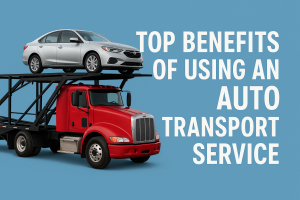Some misconceptions surrounding the industry could deter people from using car shipping carriers.
Key takeaways
- Auto transport is an underused service by many people
- The lack of use leads to the creation of myths
- These myths prevent some individuals from trying car shipping
- Learning the truth makes your decision far easier
It’s easy to fall for misinformation if you aren’t familiar with a subject. For example, if you’ve never used a particular mechanic, and someone tells you he overcharges for subpar work, you’re probably less likely to use that mechanic.
That mechanic could have hundreds of satisfied customers, but if you never hear from them, the only information you have is one person’s negative review.
Unfortunately, since car shipping isn’t a frequently used service for most people, all service providers get lumped together. If someone in your social circle has a negative experience with a carrier, you might believe every vendor is the same.
The lumping together of every vehicle-shipping company has created myths about auto transport that discourage some from trying the service. Here’s a look at seven common auto transport myths — and the actual truth.
1) It’s a slow process
A common myth about auto transport states that it takes an incredibly long time to complete a shipment. Though logistics require that shipping your car will take longer than driving, it’s actually quite efficient.
Booking a car shipment starts with finding a carrier with available space in your timeframe. You’ll reserve your spot and take your car to the drop-off point. It’ll take a few days for your vehicle to reach its final destination. The linked article estimates how long it could take to transport your vehicle.
Yes, car shipping takes longer than getting in your vehicle and driving it somewhere, but it’s relatively fast once you get your car on the truck. Using a broker reduces the time it will take to locate an available carrier.
2) Driving is cheaper
Shipping a car will cost you, and driving might seem cheaper. The difference is becoming less noticeable with today’s fuel costs, though, and gas is only part of the equation.
Driving across the country carries expenses you’ll need to consider, including food, hotels, and entertainment. Think about the wear and tear the drive puts on your car and tires. When you add the time driving takes and the stress it puts on the driver, shipping the car might be more appealing than driving long-distance.
3) Car shipping isn’t safe
Sure, damage to your vehicle could occur when shipping long-distance, particularly on an open carrier. Rocks and other debris could cause chips in your paint or windshield, which are costly and a hassle to repair.
However, minor damage to your vehicle is infrequent, and reputable carriers are fully insured. As long as you note the condition of your car before putting it on the truck and inspect the vehicle at pick-up, it’s improbable you’ll have to pay out of pocket if damage occurs. Besides, damage caused by road debris can happen when driving; your car is as likely to sustain damage compared to shipping your vehicle.
4) Distance determines the price
Many inexperienced car shippers believe the distance is solely responsible for determining your price. The distance indeed influences the service’s cost, but it isn’t the only factor.
Cost factors your carrier considers include the time of year, the transport type, the weather conditions, the terrain, and the pick-up and drop-off locations.
Much like with an airplane ticket or hotel room, car shipping prices are dynamic and based on various factors. It’s possible to find a great deal on long-haul delivery, or overpay on a short shipment to a neighboring town. It all comes down to the variables.
5) Reviews don’t matter
Reviews matter more in some industries than others. You probably won’t read many reviews before booking an airline ticket because your options are limited, and most carriers offer the same services.
Car shipping is different because reviews can provide tremendous insight into a carrier’s reliability and punctuality. Remember that fake reviews are somewhat common, so read carefully as part of your research.
6) Getting the car ready takes a lot of work
You might have heard cars require heavy prep work before shipment, but that usually isn’t the case. Although you should ensure your vehicle isn’t leaking fluids and has a good battery and proper tire pressure are solid, you’re otherwise only responsible for removing personal items and giving it a quick wash.
You’d probably take most of these steps when driving your car on a trip anyway, so preparing your vehicle for shipping won’t add significantly to your workload.
7) Contacting the carrier directly saves money
Using the hotel example again, you probably know you can sometimes get a better deal by contacting the front desk and asking for the best rate. In this case, you’re saving the hotel money on brokerage fees.
However, the opposite is true for car shipping; brokers have strong buying power. An auto-transport broker has access to an extensive network of carriers, and will leverage that network to provide the best possible price.
In short, car shipping is one industry where customers benefit from using a broker.
Finding a car-shipping broker
After resolving these auto-transport myths, you might take the leap and ship your car the next time your travel. You’ll want a broker to ensure your carrier is reputable and you receive the best quote for the service.
Mercury Auto Transport provides car-shipping brokerage services to customers throughout the country. Our network is entirely FMCSA-licensed and insured carriers, limiting your risk. Contact Mercury Auto Transport today for a free quote.






